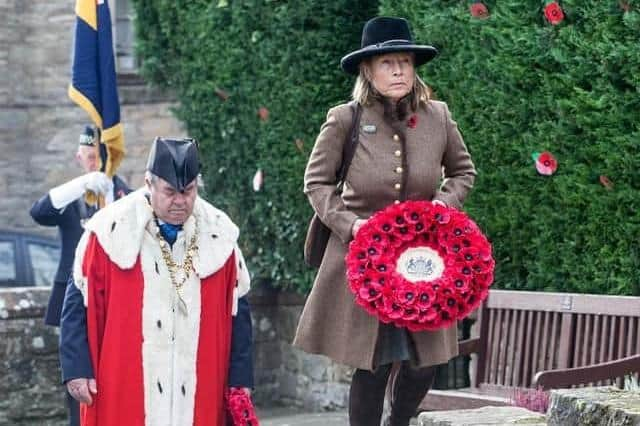A right Royal rumpus after ‘proclamation row’ in Jedburgh


There was outrage amongst town traditionalists when it was announced that the historic proclamation would be read out on Sunday, September 11, by Conservative Jedburgh councillor Scott Hamilton, the deputy leader of Scottish Borders Council.
The anger centred on the fact that it had always been the tradition in the town that when a new monarch ascended to the throne the proclamation was read by the town’s Provost and not an elected member of the council.
Advertisement
Hide AdAdvertisement
Hide AdThe change was seen by some as a ‘politicisation’ of the historic speech as it was the Provost of the day who had given the address when Her Majesty The Queen became monarch in 1952, with that same tradition also adopted for King George VI in 1936; George V in 1910 and Edward VII in 1901.
Complaints over the decision were sent to council convenor councillor Watson McAteer, who represents the Hawick and Hermitage ward and who himself read out the proclamation in his home-town.
And when the proclamation was read out at Jedburgh’s Mercat Cross at 12.45pm on Sunday it was in fact done so by the town’s honorary Provost Harvey Oliver, although Mr Hamilton also spoke at the ceremony.
One of the most vocal critics of the original decision was Rory Stewart, a former independent councillor for Jedburgh, who on his Facebook page described it as an “insult to Jedburgh” and “a huge insult to King Charles III”.
Advertisement
Hide AdAdvertisement
Hide AdHis view was echoed by some on social media, with one contributor claiming it was an example of “councillors hogging the limelight”.
Kelso town Provost Gavin Horsburgh concurred, posting: “The town is the Royal Burgh of Jedburgh. It should always be the Provost or Mayor, if the town has one. In the absence of the Lord or Deputy Lieutenant, or an arrangement made with them, the Provost is the King or Queen’s representative, not a councillor.”
Another social media contributor added: “Common sense prevailed in the end”.
Mr Hamilton said the issue was a bit of a “storm in a teacup” which “reflects the speed at which things had to be organised at”, adding: “I don’t think it requires much more comment than to say it was a short but well supported service that reflected the dignity of the late Monarch”.